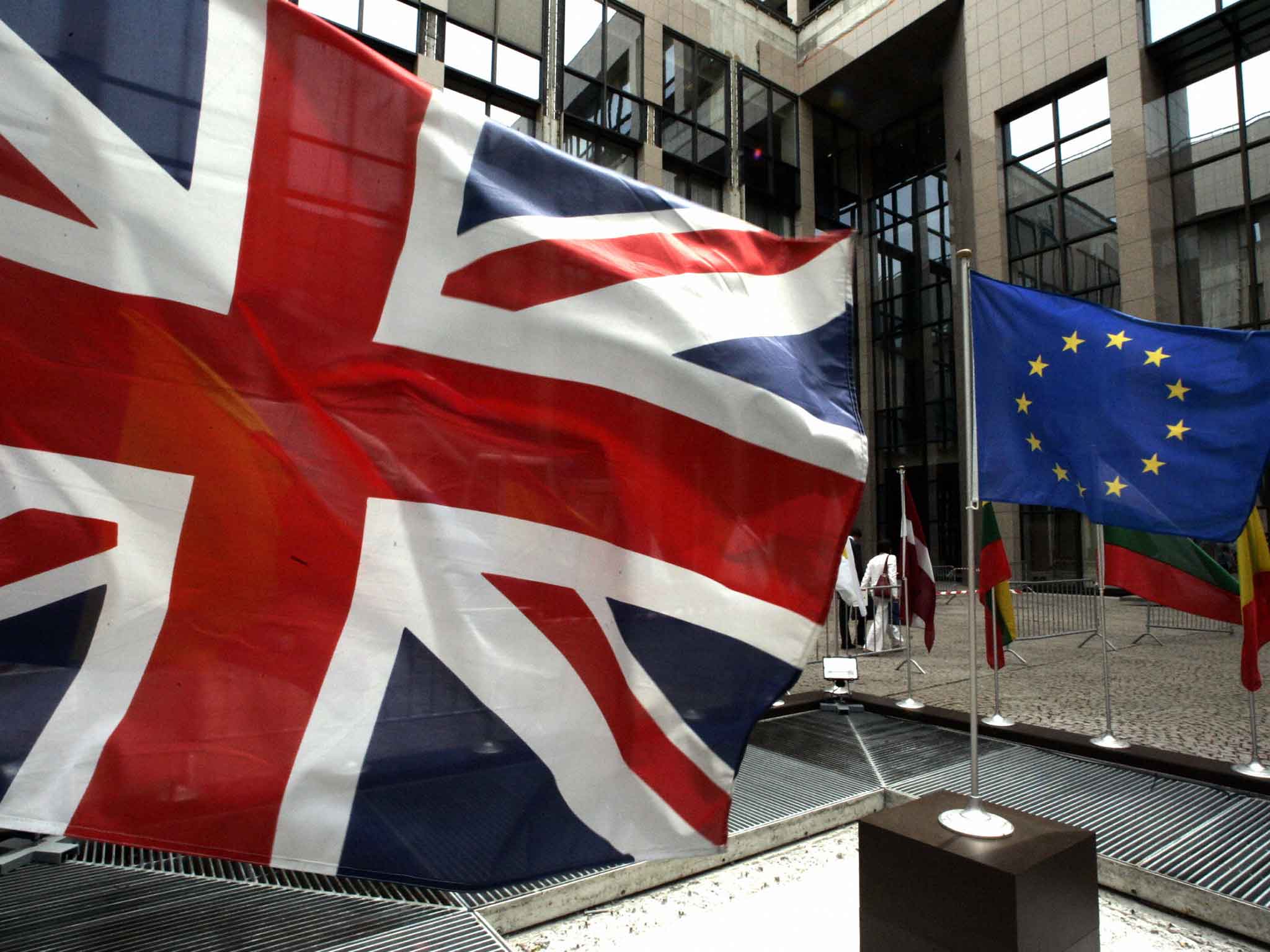Convinced by arguments to leave the EU? Consider the damage a Brexit would do to British science
Our funds competitively won from the EU are irreplaceable by national funds as they concern shared infrastructure, talent exchanges and complex high-value international collaborations


Vote Leave has declared an ambition – to pull this country out of the European Union and invest our surplus EU budget contribution in national priorities such as science and the NHS.
The choice of science is a good one. The UK does not have many natural resources but is rich in intellect and innovation. In terms of science productivity we have now surpassed America. The UK comprises 1% of the world’s population yet produces a staggering 16% of the high impact science output. Economic analyses show that a hotbed of science will draw in private investment and reliably grow high value jobs. As the world transitions into a data economy, it is vital that we are a research-savvy nation at the cutting edge. Our tech companies in London are showing the way.
Scientific research also matters to our wellbeing and health. Cancer will kill nearly a third of us and yet we invest under £10 per person annually on cancer research. If we want our NHS to be affordable and efficient, we need increased research into data management, people management, public health, new medicines and treatments.
So how much money will UK science get from pulling out of the EU? In 2012, our net contribution was £9.6bn – around 0.6% GDP. It sounds like a windfall. Yet counting these chickens makes a presumption that everything else in our economy remains unchanged as we pull the plug.
Voting to leave commits us to a disruptive disengagement process. Long-term GDP estimates of Brexit’s impact range from -9.5% to +1.6%. Open Europe provides the most optimistic of these numbers – but even there, the early hit of -1.03% of GDP easily swallows that 0.6% net contribution. Transition costs would remain for years as we renegotiate EU relationships and replace 50 trade deals. Hopefully science would be spared cuts in a temporarily shrunken economy.
While waiting for an economic rebound to supercharge British science, we’d need to salvage our relationship with the EU science programme. Our funds competitively won from the EU are irreplaceable by national funds as they concern shared infrastructure, talent exchanges and complex high-value international collaborations, which have 40% more impact than domestic-only research. According to new UNESCO data, 62% of UK scientific outputs are now international, compared to 39.6% for the US. It is that dynamic which has driven us to overtake the US for science productivity recently, according to a 2013 government report.
We pick and mix our collaborative teams from a huge smorgasbord. The EU is a science colossus, producing 34% more science output that the US and that gap is widening. Over the last decade, the EU has tripled its science budget, even as UK national science investment has shrunk. The current seven-year EU science programme, called Horizon 2020, is funded to €80 billion and also facilitates collaborations worldwide. We are at the epicentre of this global collaborative hub. Can we maintain this we leave the EU?
Countries such as Switzerland, Norway and Israel buy into the programme from outside, but have no policy voice. With less than 2% participation each, that hardly matters. Policy is a huge factor for the UK, however. We have been driving the programme direction and, at 15%, participate in more projects than any nation. Beyond policy influence loss, there’s no guarantee of continued full participation. Inside, it’s an entitlement. Outside, it’s not. Switzerland recently could negotiate only partial access due to immigration issues. It reduced their involvement by 40%.
Germany, France and the UK dominate the competitive science grant winning. This is balanced by our net contributions, which are invested in building the research and innovation capacities of struggling regions. That investment strengthens the science networks we so often lead. To depart, renege our net contribution, and demand full domineering membership from outside the team is not an attractive offer to the remaining EU countries.
The litmus test of Vote Leave’s plans for science is the UK science community itself. When Universities UK launched its “Universities for Europe” campaign, it was because all 132 of their vice-chancellors were adamant that we are better off in the EU. The last three presidents of the Royal Society have all spoken up for the EU. Recent surveys on scientists and evidence being presented to the ongoing House of Lords inquiry into EU membership and science all show a vast majority of scientists believe in building on our foremost position in the 21st century’s greatest global science hub.
Brexit is not the way to boost British science. It would strip our EU boosters off.
By Dr Mike Galsworthy is Programme Director of Scientists for EU
Join our commenting forum
Join thought-provoking conversations, follow other Independent readers and see their replies
Comments
Bookmark popover
Removed from bookmarks